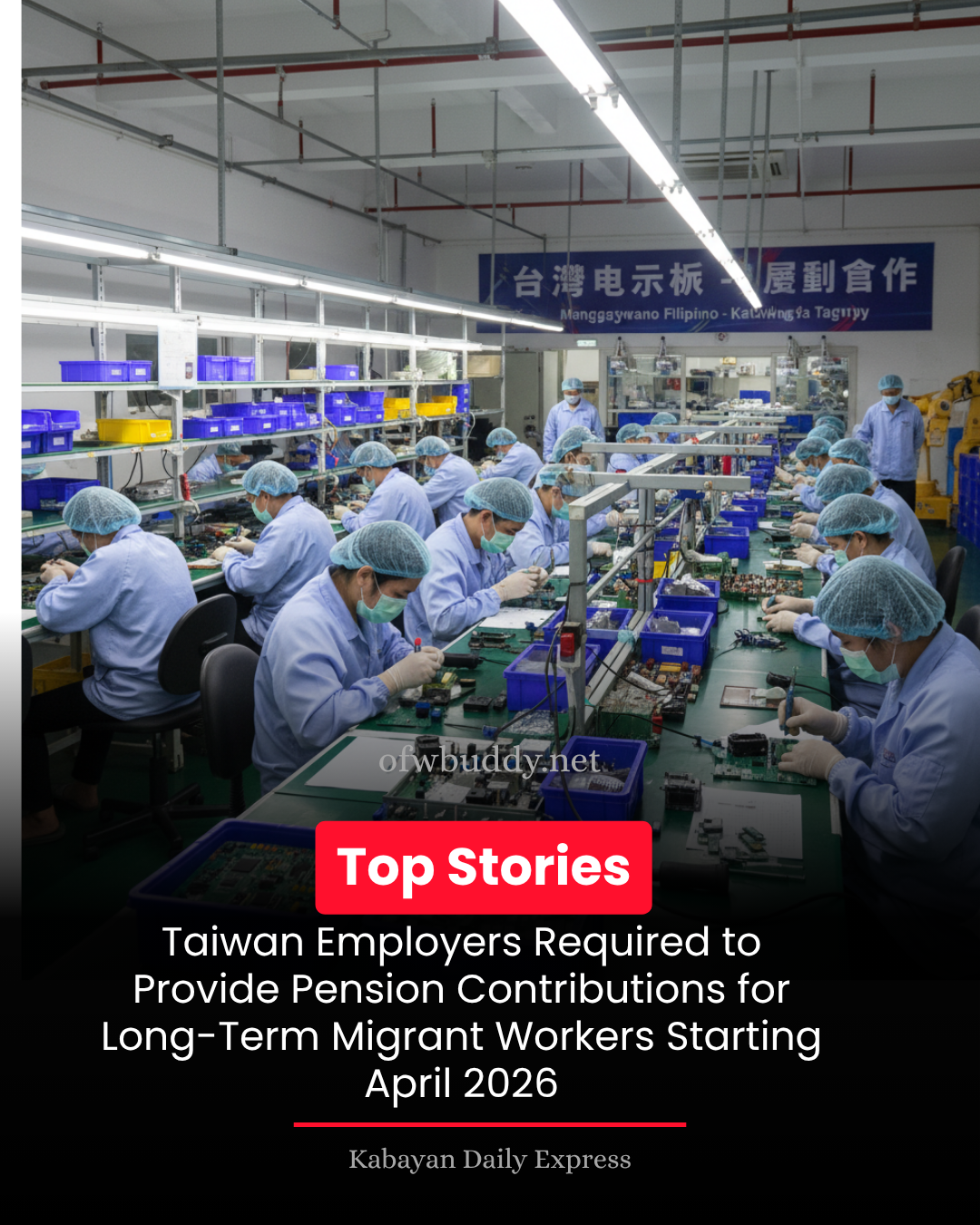October 21, 2025 – Taipei, Taiwan
Beginning April 1, 2026, employers in Taiwan will be required to contribute to pension funds for migrant workers who have been employed by the same company for more than 10 years, according to a new directive issued by the Ministry of Labor (MOL).
Huang Wei-chen (黃維琛), director of the Department of Employment Welfare and Retirement, stated that this policy marks a major shift in labor welfare for migrant employees. Previously, foreign blue-collar workers were classified as “supplementary labor” under the old labor pension system, which exempted employers from making pension contributions due to the six-year limit on their stay in Taiwan.
However, with Taiwan’s long-term retention policy now allowing qualified migrant workers to stay and work longer, the MOL has revised its interpretation of pension obligations. This comes after the Control Yuan earlier this year urged the ministry to review whether its old stance on exemptions had exceeded legal authority, given that many migrant workers now stay well beyond the original limit.
Under the updated rule, employers must allocate 2% to 15% of their workers’ total monthly wages to the old labor pension reserve fund, covering migrant employees who have continuously worked for the same company for over a decade.
Huang emphasized that while more than 7,000 companies in Taiwan currently employ migrant workers, not all have established pension reserve accounts under the old system. Local governments will assist employers in opening accounts and ensuring compliance before the policy takes effect in April next year.
The move is seen as a step toward equalizing labor rights for Taiwan’s growing number of long-term migrant workers, particularly in manufacturing, caregiving, and construction sectors.

